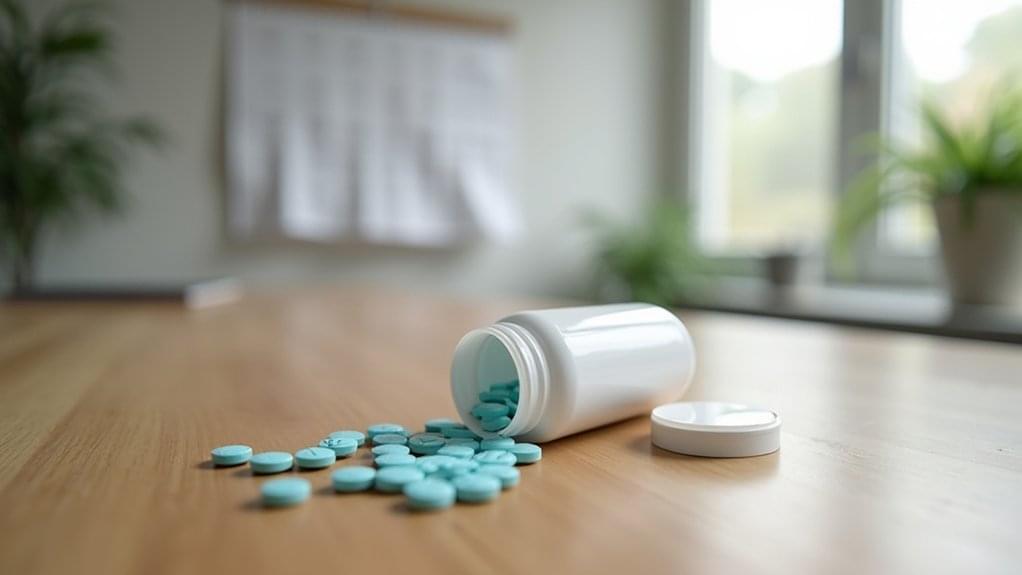PTSD and Alcohol Abuse in Veterans: What’s the Connection?
Post Traumatic Stress Disorder (PTSD) and alcohol abuse in veterans is a complex issue that has severe consequences for our nation’s heroes. Millions of veterans suffer from PTSD, and many turn to alcohol to cope with the after-effects of their military service. This can create a vicious cycle that can have devastating consequences for their mental health and well-being.
Reach out to our recovery center in Encinitas, California if you or a loved one needs addiction treatment. We can provide you with the necessary resources to overcome addiction and mental illness.
Why is Addiction More Common Among Veterans?
Veterans often face difficult transitions when they return home from service. They may have to adjust to a different lifestyle and find themselves struggling with depression, anxiety, or post-traumatic stress disorder (PTSD). This can lead to difficulty functioning in everyday life and is often connected to an increased risk of substance abuse and addiction.
Veterans are more likely than other populations to be exposed to traumatic experiences and environments that make them particularly vulnerable to substance abuse. Sadly, veterans and alcohol addiction go hand in hand because drinking is used as a coping method in the military.
Veterans may not have adequate access to resources for the prevention and treatment of addiction. This lack of accessibility can create additional barriers for those who need help overcoming their addiction.
What Causes Addiction in Veterans?
Traumatic Stress
Veterans are more likely to suffer from psychological distress caused by traumatic events, such as war or combat. This can lead to an increased risk of substance abuse, as they attempt to cope with difficult emotions and memories.
Lack of Social Support
Many veterans feel disconnected from their family and friends when returning home, leaving them feeling isolated and alone. As a result, they may turn to substance use as a means of self-medicating their feelings of loneliness and alienation.
Unemployment or Financial Difficulty
Unemployment or financial difficulty can leave veterans facing serious mental health issues such as depressive disorder, anxiety, or stress which can lead them towards substance misuse to mask these feelings. Recognizing the critical link between these challenges and mental health, providing accessible depression treatment is paramount for veterans.
Exposure to Drugs in the Military
The military normalizes drinking behavior in soldiers so that it becomes an accepted part of life. This excessive use can then lead to problem drinking when they reintegrate into civilian life.
What Kind of Substance Use is Most Common Among Veterans?
The most common type of substance use among veterans is alcohol. According to the National Institute on Alcohol Abuse and Alcoholism, approximately one-third of all veterans are heavy drinkers, and nearly half report binge drinking at least once in the last month. Additionally, up to 18 percent of veterans have self-reported using illicit drugs in the past year.
According to a 2011 survey by the California Department of Public Health, alcohol is the most common substance used by veterans in California. The survey found that 59% of veterans reported using alcohol in the past year, compared to 48% of non-veterans. This was followed by marijuana at 17%, tobacco at 14%, and other illicit substances such as cocaine and heroin at 3%.
Veterans and Mental Health

Veterans face unique stressors that can lead to mental health issues such as Post-Traumatic Stress Disorder (PTSD), depression, and substance use disorders. The most common issues are related to combat exposure and the difficulties veterans face when transitioning back into civilian life.
To address these issues, many Veterans Affairs (VA) facilities offer mental health services that focus on the needs of veterans specifically. These services include individual counseling, support groups, crisis intervention services, psychopharmacology management, and more. Additionally, the VA offers programs dedicated to understanding and treating veterans with specific conditions like PTSD and traumatic brain injury (TBI).
In addition to the specialized care available through the VA, there are several resources available for veterans who need help with their mental health. Organizations like The National Alliance on Mental Illness (NAMI) provide information about available treatments as well as online forums for people seeking support from peers. There are also organizations focused on veteran’s mental health such as Give an Hour and Home Base which both provide free mental health services specifically tailored for veterans in need.
Finally, family members and friends of veterans need to be supportive and informed about the potential mental health challenges their loved ones may face. It is also important for veterans to know that they are not alone in facing these challenges; there is a wide range of resources available to them to get the help they need.
What Types of Mental Illnesses Are Most Common Among Veterans?
The most common mental illnesses among veterans are Post-Traumatic Stress Disorder (PTSD), depression, anxiety disorders, and substance use disorders. PTSD and alcohol abuse in veterans are the most common types of co-occurring disorders among veterans.
According to the VA, in California, there are 1.7 million veterans and nearly 200,000 of them have a service-connected disability rating, which includes mental health conditions. Additionally, 45 percent of veterans in California have reported not receiving mental health treatment due to a lack of access or affordability.
The National Alliance on Mental Illness (NAMI) also reports that 55 percent of veterans in California experience depression every year and 26 percent suffer from post-traumatic stress disorder (PTSD).
How Common are Co-occurring PTSD and SUD in Veterans?
Co-occurring PTSD and alcohol abuse in veterans is an increasingly common phenomenon. Studies suggest that up to 30% of veterans with PTSD also suffer from a Substance Use Disorder (SUD).
Additionally, the same studies suggest that the prevalence of comorbid PTSD and SUD is highest among younger veterans, those with higher levels of combat exposure, and those deployed overseas.
Co-occurring PTSD and alcohol abuse in veterans have grave consequences and require comprehensive treatment. Don’t hesitate to seek professional help.
Treatment Options for Veterans With Co-Occurring Disorders
Partial Hospitalization Program (PHP)
Our partial hospitalization program (PHP) can help veterans receive comprehensive treatment to overcome addiction and mental illness. This program combines elements of outpatient and inpatient treatment to ensure clients get the treatment they need.
Dual-Diagnosis Treatment
Dual-diagnosis treatment addresses substance use and mental health conditions simultaneously. For example, PTSD and alcohol abuse in veterans can be treated using this program. This type of treatment typically involves individual or group counseling sessions, as well as medication management if necessary.
Medication-Assisted Treatment (MAT)
Medication-assisted treatment (MAT) can treat the symptoms associated with both mental health and substance use disorders. Medications could include antidepressants, anti-anxiety medications, and drugs that reduce cravings.
Psychotherapy
Cognitive Behavioral Therapy (CBT) and Dialectical Behavioral Therapy (DBT) are two types of psychotherapy that are effective in treating veterans with co-occurring disorders. These therapies emphasize developing coping skills and exploring the connection between thoughts, feelings, and behaviors.
Support Groups
Support groups provide a safe place for veterans to talk about their experiences in a non-judgmental atmosphere, learn from each other, and gain emotional support from peers who are going through similar struggles.
Holistic Treatment
Holistic treatments such as yoga, meditation, art therapy, and adventure therapy can help veterans manage their stress levels while also providing an outlet for creative expression.
Rehabilitation Programs
Rehabilitation programs focus on helping veterans develop the skills needed to live a healthy lifestyle free from drugs or alcohol and cope with any underlying mental health issues they may be facing. These programs often include individual counseling, group therapy sessions, educational classes, and job training programs.
What Can I Do For My Loved One if They Are Facing Addiction as a Veteran?

If your loved one is facing addiction as a veteran, there are several treatment options available to help them. First and foremost, seek professional help from a certified mental health professional who specializes in treating veterans with co-occurring disorders.
Mental health professionals can provide an individualized care plan that factors in each client’s unique physical, psychological, and social needs. The care team may include a psychologist or psychiatrist, social worker, primary care physician, and substance abuse counselor.
Treatment options include cognitive behavioral therapy (CBT), dialectical behavior therapy (DBT), group counseling sessions, and peer support groups. It is also important to offer emotional guidance and encouragement when possible to promote long-term success in recovery.
Resources for PTSD and Alcohol Abuse in Veterans
Department of Veterans Affairs (VA)
The Department of Veterans Affairs (VA) provides a range of treatments and services to help veterans with addiction. These include individual and group counseling, medication-assisted treatment, residential treatment programs, and support groups. The VA also has a specialized program that focuses on the unique needs of veterans with substance use disorders, such as homeless outreach or mental health services. Additionally, the VA connects veterans with community resources to help them access local substance abuse programs.
National Center for PTSD
The National Center for PTSD provides resources to help veterans with addiction through a variety of support systems and services. These resources include psychological counseling, support groups, treatment programs, and mental health education.
These centers provide evidence-based treatments such as cognitive-behavioral therapy (CBT), motivational interviewing (MI), and other forms of psychotherapy. Veterans can also access resources for financial assistance, employment support, housing assistance, and more.
Substance Abuse and Mental Health Services Administration (SAMHSA)
The Substance Abuse and Mental Health Services Administration (SAMHSA) can help veterans in a variety of ways, including providing support services for mental health and substance abuse issues. SAMHSA also helps connect veterans with local resources, including housing assistance, job training programs, and educational opportunities.
Immersive Recovery Treats PTSD and Alcohol Abuse in Veterans
Immersive Recovery provides comprehensive addiction treatment programs tailored to each client’s needs. Our programs include individualized counseling, group therapy, and other therapeutic services to help veterans address their substance abuse and mental health issues.
Our programs follow evidence-based practices and focus on helping clients achieve long-term recovery. We provide our clients with the tools they need to overcome their addiction and lead healthier and happier lives. Contact us today to learn more about our services.




